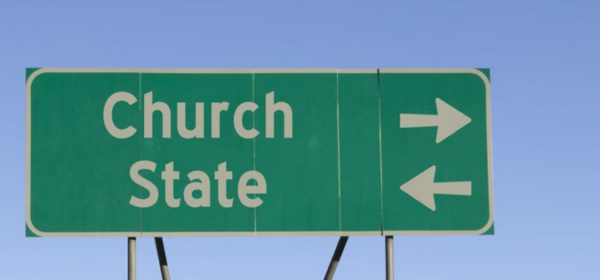Do the Ten Commandments Belong in Public School Classrooms?
Louisiana recently passed a law to post the Ten Commandments in all state public schools. Does posting of the Ten Commandments in Louisiana public schools violate the doctrine of separation of church and state, and the First Amendment?
Is Posting the Ten Commandments in Public Schools Constitutional?
Louisiana became the only U.S. state requiring the Ten Commandments to be displayed in public classrooms when such a law was signed by the governor on June 19, 2024.
On November 12, 2024, a federal judge declared this Louisiana law unconstitutional saying it was “discriminatory and coercive.” This federal judge ruled Louisiana’s law conflicted with a 1980 U.S. Supreme Court decision which stated a law in Kentucky requiring school officials to post a copy of the Ten Commandments in every public classroom violated the First Amendment’s Establishment Clause.
What Does the First Amendment and Establishment Clause Say?
The first Amendment reads:
“Congress shall make no law respecting an establishment of religion, or prohibiting the free exercise thereof; or abridging the freedom of speech, or of the press; or the right of the people peaceably to assemble, and to petition the Government for a redress of grievances.”
What Is the Establishment Clause?
The Establishment Clause is the first part of the First Amendment and prohibits the government from establishing a religion: “Congress shall make no law respecting an establishment of religion…”
Does the Constitution Mention Separation of Church and State?
There is no mention in the Constitution of “separation of church and state.”
However, the Establishment Clause of First Amendment is often interpreted to require separation of church and state.
How Did the Phrase “Separation of Church and State” Become Popular?
The idea of separation of church and state was popularized by Thomas Jefferson in a letter he wrote in 1802. In that letter Jefferson said that when Americans accepted the Bill of Rights, they “built a wall of separation between the church and state.”
Does the Constitution Mention God?
The U.S. Constitution does not mention God or the divine. However, God or the divine is mentioned in all 50 state constitutions, as well as the Declaration of Independence, the Pledge of Allegiance and on U.S. currency. Also, Christmas Day is the only federal holiday that’s also a religious holiday.
What Happens Next with the Louisiana Ten Commandments Law?
The federal court will hear further arguments on Louisiana’s Ten Commandments law and no matter which side wins, the case will surely be referred to the U.S. Supreme Court.
What Does the U.S. Supreme Court Do?
Article Three of the U.S. Constitution gives the Supreme Court the role of interpreting the Constitution itself.
Over time, as new Supreme Court justices are appointed to the court, as our society changes and other factors intervene, some previous decisions of the Supreme Court have changed—this is called the Supreme Court “reversing itself.” When a court “reverses itself,” it has essentially changed its mind. First, it decides that some issue should be decided one way and then, when it reverses itself, it rules that the issue should be decided another way.
How Many Times Has the Supreme Court Reversed Itself?
Supreme Court decisions have been overturned hundreds of times by later decisions. Here is a listing of overturned decisions.
When Will Separation of Church and State Issues Be Resolved?
Conclusion
Given that separation of Church and State has been a hot topic since the founding of our United States, it is safe to say these arguments will be with us for the foreseeable future.
Dave Kluge
www.understandtheconstitution.com
Author of The People’s Guide to the United States Constitution. The book presents the original texts of the Declaration of Independence, Constitution, Bill of Rights and all amendments, with enough background, examples, and definitions to easily understand and read straight through these documents.

